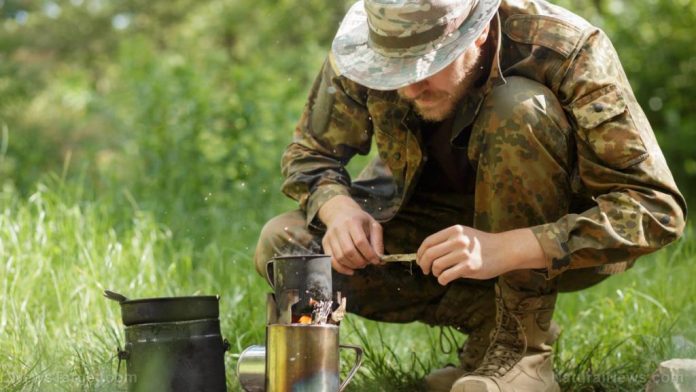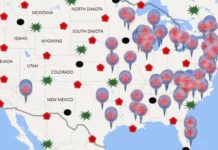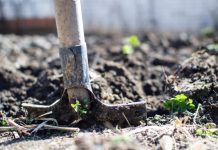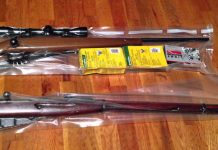The ranks of preppers ebb and flow, like a tide, depending on how much there is to think about the next possible disaster.
There were many people constructing bomb shelters and cabins in the woods during the latter days of the Cold War.
When Y2K was the rage, there were huge numbers of people, who had never prepared before, filling their cellars with food, “just in case.” The newest was the Coronavirus, which has everyone turned into a prepper.
There are always and always will be new preppers. That is something that we should look forward to.
There’s nothing like being satisfied with having a friend or family member who watched us make the decision to join our ranks. They need our help to get going and this is something that we should be prepared to give.
But where do you get started? What are you giving them, to get them to go in the right direction? Let me just give you some suggestions.
Risk
When they come to you thinking about being a prepper, it means they have already come to know that we are living in a dangerous world, and they need to be prepared to deal with it. Their eyes are now open, no matter what particular dangers they see.
It is important to define what the risk is, and what the concern is, before anything else. People will often make their first questions about becoming a prepper, because they are worried about a particular risk we face. Such was the case of Y2K. Yet the world we live in faces even more threats.


A thorough evaluation of what risks one faces is a part of knowing what they need to plan for those risks. Some major ones everyone needs to think about are:
- Natural disasters (of whatever type plague that area)
- EMP attack against the grid
- Financial collapse
- Pandemic
Just getting prepared for these areas will cover most possible things.
Survival
Prepping is all about being able to live when there aren’t things that we can rely on.
There is either a partial or complete breakdown of the infrastructure that we all take for granted in each and every survival scenario we talk about.
This is why we have to learn what are the basic needs for survival. These are also articulated by means of the “Rule of 3s”
- You can survive three minutes without oxygen
- Thirty minutes without maintaining your core body temperature (so we need heat)
- Three days without clean water to drink
- Thirty days without food
There are a few other things that we need to have in order to fulfill such basic needs, in a supporting role:
- Ability to defend ourselves
- Ability to start a fire, even in the worst weather conditions
- Ability to render first-aid for injures
Stockpiling
Stockpiling is the beginning and end of prepping; primarily food, but also water as well as other survival supplies.
I say it’s the beginning and the end, since it’s the first thing most preppers tend to do, and because it never begins, it can be argued that it’s the last thing they (never) finish.


While it is possible to survive without a good stockpile of supplies, it is much easier to survive with those supplies if one has the equipment needed and knowledge.
That is also the main factor why preppers stockpile. But it’s hard to know how to build a decent stockpile, with the right stuff, without getting diverted into wasting money on items that won’t be of any use. You have to be cautious, because not every idea is a good one.
Related: 12 Essential Food to Stockpile Before It’s Off the Shelves
Bugging In
One of the main prepping questions is whether to bug in (the shelter in place) or bug out (evacuate).
While there are always exceptions, bug-in is more sensible for most people than bug-out, in most situations. Bugging in means you have shelter in your house, as well as all your belongings to help you survive.
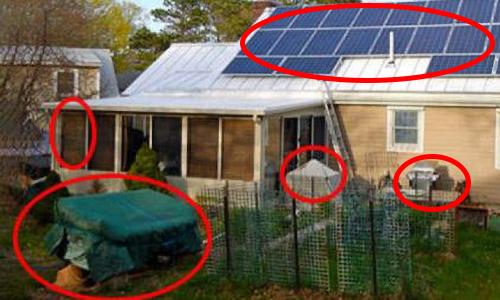

The equation for that decision, however, also relies on certain issues. Anyone living in a high-rise apartment, in the center of a city, would have a more difficult time bugging in than anyone living in the suburbs. The apartment dweller has fewer resources at his disposal, with more people trying to reach those resources.
Chances are, because of limited space, they’ll have a smaller stockpile too.
Related: 10 Reasons to Bug In and NOT Bug Out!
Bugging Out
Regardless of who you are and how good you are prepared, you need to have a plan for bugging out. It didn’t matter how well-trained the people of Paradise, CA were when every building in their town was burned down by Camp Fire, all they had stockpiled went up in flames. Bugging in, would have been a death sentence in that scenario.
Yet bugging out, can also be a death sentence without adequate planning.
At the end of the rainbow, there is no pot of gold which you can count on to have all the supplies you need. Although there will be pockets where there are supplies, they probably won’t be where you think; and someone who owns those supplies won’t be able to just give them up.
The bug out bag is an integral part of bugging, but it is not sufficient. The usual bug out bag has just got three days of food in it.
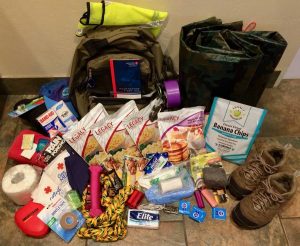

Then what do you do? If you don’t have a resupply source, all that the bug out bag can do is prolong your life by 3 days; nothing more. You need to know where you’re going to go, and what you’re going to do, once you get there, in order to survive.
Any bug-out plan that depends on someone else providing for your needs is destined for failure. The only exception to that would be if you made plans with a family member and stored your family’s supplies at their place for use.
Related: A Prepper’s Guide to Bugging Out
Survival Skills
When all is said and done, skills trump supplies and tools. You can make just about any tool you need, with the right knowledge.
You can harvest or make pretty much any supplies you need with the right tools. So while stockpiling and planning are important, it’s even more important to learn useful survival skills.
It involves studying the forgotten skills of how to do things, like our ancestors did. In a TEOTWAWKI (the end of the world as we know it) world, knowing blacksmithing, sewing, gardening, animal husbandry and how to do carpentry without power tools will be invaluable skills.
Such skills, as well as a variety of others, may be the key not only to survive in a post-disaster world, but also to rebuild your life and to build a community.



